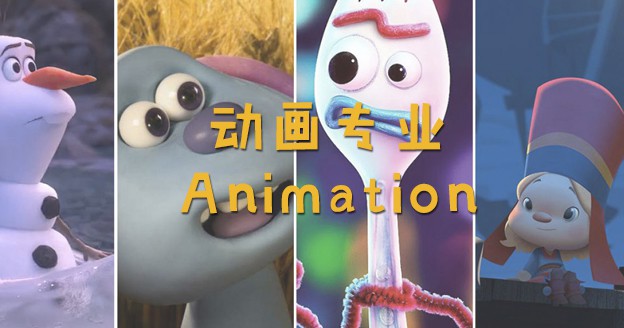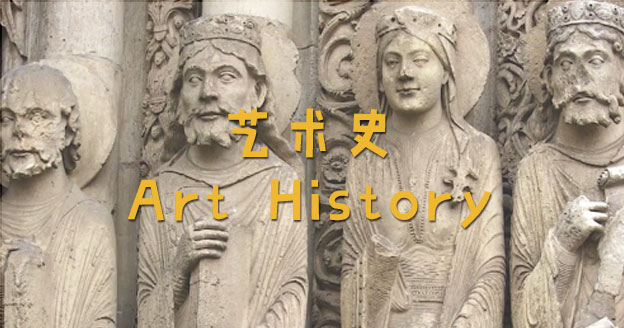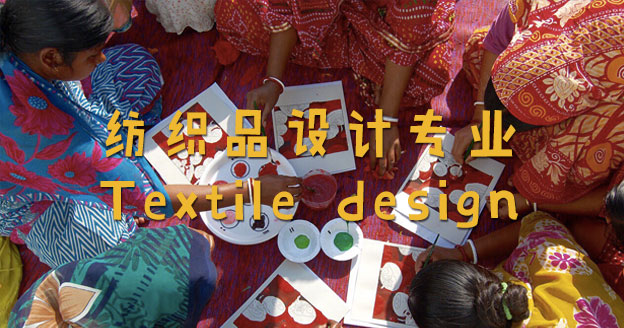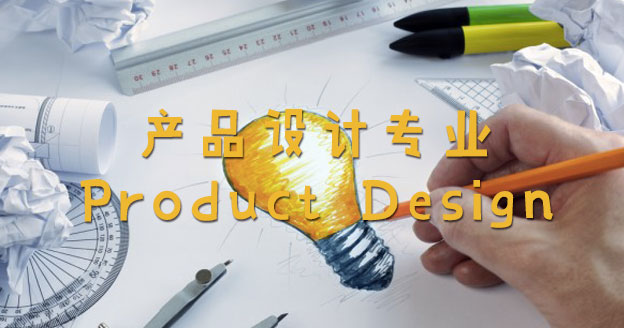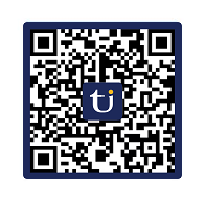[Introduction] I believe that the early childhood education profession is not new to us now. Since Chinese parents have been bringing their attention to the issues around early childhood education in recent years, more and more early education institutions have emerged on the market, but the level of standards is uneven. The overwhelming majority of these institutions are just empty carcasses. Some people say that the early education major is easy, and some say that this major is good for employment, but is this really true? Some people also say that this major is good for easy immigration; others say this major just teaches you how to change diapers. So, what is the prospect of studying in early childhood education in Canada? This article will cover the introduction of the program and courses, employment prospects, rankings, professional skills learned, as well as the views of our readers and UtoCanada.
Analysis of Canadian Early Childhood Education 1: the Major and the Curriculum
Introduction to Canadian Early Childhood Education
In the community of Canadian international students, early childhood education is not as popular as the traditional business, computer science, and accounting majors. However, in recent years, early childhood education has gradually gained its popularity among female students because of its advantages, such as easy employment, high starting salary, and stable work. As the name implies, the early childhood education profession focuses on preschool children as the object of education. Also included as part of the studies is the understanding of prenatal, infant, toddler, pre-school and school age development. The main concept of the program is to learn theories and knowledge about how to provide a safe and nurturing environment for children that encourages their social, emotional, physical and intellectual development.
What courses do Early Childhood Education (ECE) students generally take? (What type of internships do they do?)
In the ECE courses, students learn a lot about children's physical development and the formation of cognition skills, emotion, personality and other aspects. At the same time, you also need to learn the skills and knowledge needed to help children develop these aspects. In addition, there will be theoretical knowledge about teaching. In this four-semester diploma course, you will learn about the physical, cognitive, social, and emotional needs of children. In this program, students will learn how to design and implement developmentally appropriate curriculums to support the healthy development of children from infancy to school age. Basic courses include child development, education concepts, communication, family perspectives and management. Students use existing guidelines and comprehensive planning to support children’s development.
The profession requires building positive relationships with children, family members, colleagues and other professionals. Basic programs include internships, and the place of your internship can be your future workplace after graduation, so this opportunity is very important. Internship work may be two or three days a week. Internships are places for gaining experience. During each semester, you will be scheduled to study in a school or institution two or three days a week. Some universities offer summer courses for students who need to graduate early.
The classroom knowledge mainly focuses on the basic knowledge of early education and child care management methods, including: children's physiology, psychological development at various stages,游戏和活动设计、如何配合家庭教育、儿童营养学、健康学、如何注意及保障儿童安全、以及怎样照顾有特殊需要的儿童。ECE和ECA专业通常包含教育学课程设置有:
- 艺术教育 Arts Education
- 课程与教学 Curriculum and Instruction
- 教育技术与学习设计 Education Technology and Learning Design
- 教育心理学 Education Psychology
- 小学教育 Elementary Education
- 中学教育 Secondary Education
- 学前教育 Early Childhood Education
- 成人教育 Adult Education
- 教育管理 Education Administration
- 音乐教育 Music Education
- 英语为第二语言教育 Teaching English as a Second Language
- 教育领导力 Education Leadership
如果你就业的ECE专业有Co-op机会(带薪实习),那么实习部分一般情况下包括两个阶段:
- 第一阶段婴儿期(0-2.5岁)孩童的看护;
- 第二阶段:学龄前儿童的教育。
Career Prospects / Direction of the Early Childhood Education Major
In Canada, when you graduate from an Early Childhood Education program, you can work at the following places: early childhood education centres, family resource projects, EarlyOn centres, extracurricular programs, kindergartens, parent education programs, private child care centres and education centres for children with special needs.Early childhood professionals in Canada are in high demand, and they are valued by the government. Currently, professionally trained early childhood educators (ECE) and early childhood assistants (ECA) account for 80% of the current market share of early childhood education, and this number will increase year by year. Therefore, the growth of job opportunities for ECEs and ECAs have been bountiful in recent years, and related job opportunities will continue to increase in the next 5 years.
The continued growth of the industry benefits from the following factors:
Industry Requirements for Employment
Anyone who has children in Canada knows that daycare and kindergartens are expensive here. What is the main reason for it being so expensive? In addition to the facilities required by the law, teachers in daycares and kindergartens must hold at least an ECE or ECA certificate (with the exception to some art education and sports institutions for children).
The government supports the early childhood education industry
Young parents who need to work would inevitably need to find someone to take care of their children. According to information released by the government, the proportion of Canadian parents with children under six years of age, who have engaged in full-time work, has increased dramatically in recent years, reaching 80% in 2015. The government benefits from income taxes from high employment, so to solve the problem of children lacking daytime care, many provinces have introduced favourable childcare subsidy policies for low-income families, such as inNew Brunswickand Ontario. In addition, governments at all levels and more and more parents realize the importance of early childhood education. Therefore, this has created a huge demand for professional educators in the job market.
Increased demand for Chinese language teaching in parts of Canada
Benefiting from Canada's current relaxed immigration policies and the rise of China's economy, the Chinese population in Canada is steadily increasing, and learning the Chinese language is gradually becoming popular in Canada. At the same time, many Chinese parents want their children to be able to speak Chinese. Therefore, the market currently needs Chinese-speaking, licensed, experienced ECEs and ECAs. According to the government's analysis of the labour market, in some cities in Ontario and BC where Chinese are concentrated, Chinese-speaking kindergarten teachers, ECE teachers and ECA teachers are favoured by kindergartens. Taking BC as an example, the unemployment rate in this industry is expected to be only 3.2% in 2022.
Good job prospects after returning to China
Everyone knows that Chinese parents are competitive and believe that their children "must not lose at the starting line," which shows the importance they attach to early education. With the rise of the Chinese consumption level, various "international schools" or "children's English training institutes” have emerged in China. Therefore, after graduating from ECE and other education majors, professionals in this industry are very popular especially in the coastal areas and some high-end preschool institutions in China.
For more information about the current status of ECE industry, please refer to "Early Childhood Educators and Assistants" published on the Ontario government website.
Where can I work after graduating from my ECE program in Canada?
Possible workplaces include:
- Daycares / Child care programs
- Day Nursery Schools
- After School Programs
- Summer Campus
- Hospital Sick Childre
- Family Child Care
- Special Needs Educator,SN
- Kindergarten
- Family Resource Program
- In-home Child Care
Although these institutions are all for infants and young children, their focus is different, so I will not go into detail here.
ECE Employment Requirements
After graduating from this major, itdoes not mean that you can directly get employed. In general, the requirements are:
- ECE graduation certificate (This is the basic requirement)
- Must be registered and a member in good standing with the College of Early Childhood Educators
- Willingness to different cultures and religions, not discriminate against children of different ethnic backgrounds, and can conduct teaching activities in a reasonable manner
- Be patient and caring, and like to maintain good communication with children, colleagues and volunteers. When in a noisy kindergarten, the normal daily routine of children is to run around, fight for toys and cry, so as a teacher; you need to be about to manage the group;
- Strong English writing communication skills: At work, it is often necessary to write observations and reports on the children;
- A certain level of spoken English;
- a valid standard first aid certification including infant and child cardiopulmonary resuscitation (CPR): For emergencies, first aid and CPR skills can greatly reduce the possibility of severe injuries;
- Up-to-date immunization record
- Must be able to work outdoors (for children’s outdoor activities)
Employment Requirements for Early Childhood Educators
Admission requirements for ECE majors in different schools are similar. Taking Seneca College as an example, if you decide to take the major, in addition to the conventionally materials such as your high school diplomas and language proficiency results, you need to prepare:
- Current medical report:
- Report of chest x-ray or tuberculin skin test: Tuberculin Skin Test,Report of chest x-ray or tuberculin skin test (TST),Mantoux test (used to assess whether you have contracted tuberculosis)
- A valid Standard First Aid Certificate:
- A valid C.P.R. Certificate:
- Current Police Reference Check:
Another typical requirement is volunteer hours. For example, in位于BC省的的Langara College Langara College。他们in BC,applicants are required to have volunteered in working with children under 6 years of age for 40 hours in a licensed early childhood education centre. Volunteering experience is mandatory so applicants can find out whether they are suitable for the job as an early childhood educator. Working with children is not an easy task. It is necessary to be mentally prepared before applying for the major and joining the industry.
Volunteering can help a student get a sense of whether the job is suitable and enjoyable. Most people choose to study early childhood education because they like children. However, the degree of liking, the persistence, and the tolerance will be reflected in the work. I have a friend who is doing early childhood education in Vancouver. She said to me: some people’s love for children can last for 3 hours, some people for 3 days, some people for 3 months, and when you continue for more than 3 years, and your passion still remains, that means this profession is for you.
Early Childhood EducationLanguage Requirements
International students applying for early childhood education majors are required to provide proof of language proficiency. Most colleges require an IELTS score of 6.0 (with a minimum of 5.5 in each section) or a TOEFL score of 80 (with a minimum of 20 in each skill). Mohawk College requires an IELTS score of 6.5. If you do not have a language proficiency score, or if your score is not high enough, you can apply for conditional admission for a language program before your professional courses. After successfully completing the language program at school, you can directly enter the undergraduate o diploma program without having to take the IELTS or TOEFL test again. The profession of early childhood education is mainly about working with children. Some applicants will think that getting along with children does not require high language ability, but in fact, they mainly communicate with children and are the children’s language instructors. So for early childhood educators, language skills are crucial. Some colleges will even require interviews with applicants.
Recommended Schools & Rankings
Traditionally, diplomas / degrees of the early childhood education profession in Canada can be obtained in three forms:
- Certificate Program:generally 2-3 years
- Undergraduate Program:generally 4 years to complete
- Graduate Program:generally 2 years to complete
Top 10 Education Majors in Canada
1、 University of Toronto(Education major at the University of Toronto)
2、UBC(University of British Columbia Education Major ):
3、 University of Alberta(Education major)
4、McGill University(Education Major ):
5、 Queen’s University(Education Major)
7、 Simon Fraser University(Education Major)
8、 University of Victoria(Education major)
9、 University of Calgary(Education Major)
10、 Université de Montréal (Education Major)
Recommendation: Colleges that provide Early Childhood Education (ECE) programs
In Canada, there are many colleges and universities that provide early childhood education programs:
- Fanshawe College , located in London, Ontario 2-year program
- George Brown College : 2-year program,, 4 semesters, each semester consists of 7 weeks of professional courses and a 7-week internship placement. The school also has dedicated teachers to track and evaluate interns, etc. It seems to be the most stringent and best managed of all schools.
- Humber Institute of Technology & Advanced Learning , Toronto, Ontario 2-year program
- Niagara College 2-year program
- Georgian College Barrie, Ontario 2-year program
- Centennial College , Toronto, Ontario 2-year program
- Mohawk College , located in Hamilton, Ontario,2-year program: Requires an IELTS score of 6.5.
- Algonquin College , Ottawa, Ontario 2-year program
- Douglas College New Westminster,Columbia,2-year program
- Langara College , located in Vancouver, Columbia) 1-year program: mentioned above.
Can I immigrate if I work in early childhood education?
Early childhood education is just a general industry. In fact, international students engaged in early childhood education-related work in Canada are mainly divided in three categories. The first two categories are advantageous for immigration, and the third category is a transitional position, which leads back to the first two categories.
》》》 First Category: Kindergarten and Elementary School Teachers
Belonging to Canada's Skill Type 0 positions, this makes immigration easy. Professionals need tohold a bachelor's degree in education or child development,teacher qualifications, and be a member of the provincial teacher association or alliance;
》》》 Second Category: Early Education Workers and Assistants
Belonging to Canada's Skill Type B position, it makes immigration easy. Among them, early childhood education positions require an ECE diploma or bachelor's degree, and early education assistants (ECAs) need to have completed secondary school education, and have experience in childcare and certificates in related professional fields. It is easier to immigrate if you can engage in the above two types of positions;
》》》 Third Category: Primary and Secondary School Teacher Assistants
This is a transitional position. This Skill Type C position is also anon-essentialposition. Although the position itself is not eligible for immigration, it is easier to compete for the first two positions after accumulating half a year or more of work experience. Therefore, it is called a transitional position. According to analysis, the stepping-stone for these positions is to assist teachers during your studies in Canada, such as being a teaching assistant, or getting a recommendation from an actual teacher during an internship in a primary and secondary education institution.
In viewing of the breakdown of this position and the chances of immigrating, these details are important things to consider before you decide.
Canadian Early Childhood Education Professional Analysis 2: Employment Prospects and Job Opportunities
Our Education Consultant’s Summary of Preschool Education
Canadians deeply understand that the quality of teachers and the level of teaching directly affect the next generation. The educator / teacher caring for infants and young children, a protected group, is naturally under the strict monitoring of the government. Of course, with the birth of a large number of newborns, it is a long-term task to vigorously develop early childhood education not only in Canada but globally. After various incidents of child abuse in kindergartens in China, sooner or later China will introduce policies to increase strict requirements for kindergarten teachers. Therefore, whether you choose to study early education in China or Canada,it is a very stable and guaranteed position, especially for females.
Although it is not difficult to graduate from an early childhood education program and it is relatively easy to find a job and apply for immigration according to the current immigration policy of Canada, we still hope that the applicant really enjoys working with children and can establish good communication and relationships with them. With keen observation and insight, you can help children learn, instead of using the profession as a stepping-stone to apply for immigration. Although the child's first teacher is the parent, as an educator, we need to feedback our findings to parents in a timely manner so that they can communicate make a change as soon as possible. Although it is a promising career, UtoCanada recommends that before you select this major, you must first determine that this job is suitable for you! A good way is to go to find volunteer work in kindergartens and test the waters. This shows the importance of gaining volunteering experience before applying for this major.

